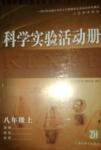题目内容
t is not how much we do but how much love we put into ____we do____benefits our work most.
A. That , who B. Which, that C. What , that D. What, what
【答案】
C
【解析】略

练习册系列答案
 科学实验活动册系列答案
科学实验活动册系列答案
相关题目
题目内容
t is not how much we do but how much love we put into ____we do____benefits our work most.
A. That , who B. Which, that C. What , that D. What, what
C
【解析】略

 科学实验活动册系列答案
科学实验活动册系列答案